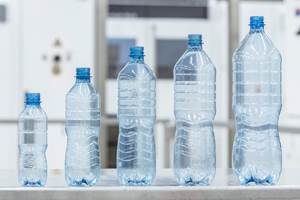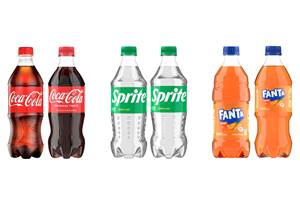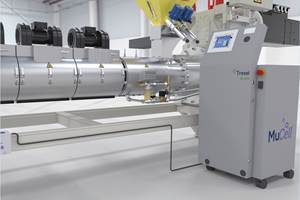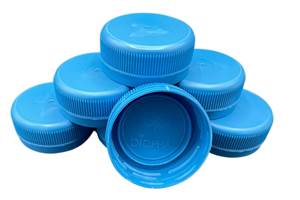NAFTA Modernization Supported by North American Plastics Industry
Three major trade groups announce list of priorities for plastics in upcoming negotiations.
A recent summit that brought together the leadership of North America’s three leading plastics industry trade groups—Plastics Industry Association (PLASTICS), Canadian Plastics Industry Association (CPIA) and Asociación Nacional de Industrias del Plástico A.C. (ANIPAC), was held in Mexico City, Mexico. The result was a unified platform of policy priorities by the North American plastics industry for the upcoming modernization of NAFTA that will strengthen each nation’s plastics industry.
Here are several specific areas of focus for trade negotiators when they begin to work on NAFTA later this year, as agreed upon and advocated by the three organizations:
β Continued support of the growth and development of the North American plastics industry. Since NAFTA took effect, its member nations’ plastics industries have grown immensely. Broadly, each organization supports efforts to promote this growth.
β Harmonization of regulations of all types as they affect the industry. For example, aligning regulations on food packaging that are different would make it easier for smaller companies to expand their ΄σΟσ΄«Γ½ across borders without having to worry about a new compliance burden. Another example would be a continent-wide harmonization of the treatment of plastics as sustainable materials, for the purposes of government procurement and other areas. Adjusting NAFTA to facilitate enhanced sustainability efforts throughout the industry in North America is a key goal for all three nations.
β A review of the Rules of Origin (ROO). Endorsement of a review of ROO and their enforcement under NAFTA as they impact everything from raw plastic materials all the way through finished products containing plastic.
β Ease of employee access throughout the continent. Employees of plastic companies, particularly those that sell and service manufacturing machinery, should be able to travel and work throughout NAFTA member nations. Certain requirements make it costly for ΄σΟσ΄«Γ½es to send employees to other countries to provide their services, and these should be adjusted or eliminated.
β No new tariffs. The absence of tariffs is what’s made NAFTA so successful for all three member nations’ plastic industries over the last 25 years. The North American plastics industry is united in its opposition to any new tariffs that would have a profoundly negative impact on all three nations and their workers.
β Continued labor cost flexibility between the three nations. The diversity of labor costs in North America provide immense benefits to our industries, and allows each of them to be competitive globally and to play to the strengths of each individual country’s plastics industry. We would oppose attempts to restrict the choices manufacturers have when it comes to where and how they make their products.
PLASTICS, CPIA and ANIPAC plan to continue to work together throughout the NAFTA renegotiation process. Said PLASTICS president & CEO William Carteaux:
“Our three organizations stand unified in wanting to support the growth and development of our industry across North America….plastics are the proven sustainable material of choice for an infinite array of applications throughout North America, and the world at large. Strengthening NAFTA will enable us to work together to develop new solutions to our world’s environmental challenges while also benefitting the millions of workers in the three NAFTA member nations.”
Read more about PLASTICS work to support NAFTA.

Related Content
First Water Bottles With Ultrathin Glass Coating
Long used for sensitive juices and carbonated soft drinks, KHS Freshsafe PET Plasmax vapor-deposited glass coating is now providing freshness and flavor protection for PET mineral water bottles.
Read MoreCoca-Cola’s Redesign of Small PET Bottles Pushes Lightweighting Below Prior ‘Floor’
Coca-Cola thought it had reached the limits of lightweighting for its small PET carbonated soft drink bottles. But a “complete redesign” led to a further 12% reduction.
Read MoreFoam-Core Multilayer Blow Molding: How It’s Done
Learn here how to take advantage of new lightweighting and recycle utilization opportunities in consumer packaging, thanks to a collaboration of leaders in microcellular foaming and multilayer head design.
Read MorePHA Compound Molded into “World’s First” Biodegradable Bottle Closures
Beyond Plastic and partners have created a certified biodegradable PHA compound that can be injection molded into 38-mm closures in a sub 6-second cycle from a multicavity hot runner tool.
Read MoreRead Next
Making the Circular Economy a Reality
Driven by brand owner demands and new worldwide legislation, the entire supply chain is working toward the shift to circularity, with some evidence the circular economy has already begun.
Read MoreSee Recyclers Close the Loop on Trade Show Production Scrap at NPE2024
A collaboration between show organizer PLASTICS, recycler CPR and size reduction experts WEIMA and Conair recovered and recycled all production scrap at NPE2024.
Read MoreFor PLASTICS' CEO Seaholm, NPE to Shine Light on Sustainability Successes
With advocacy, communication and sustainability as three main pillars, Seaholm leads a trade association to NPE that ‘is more active today than we have ever been.’
Read More












